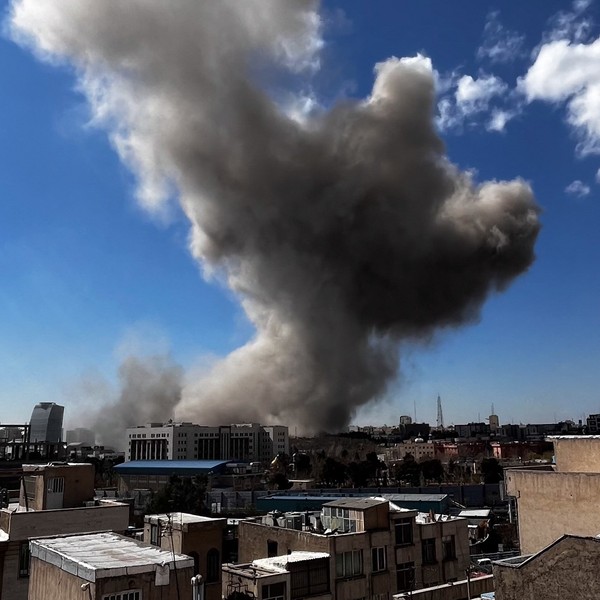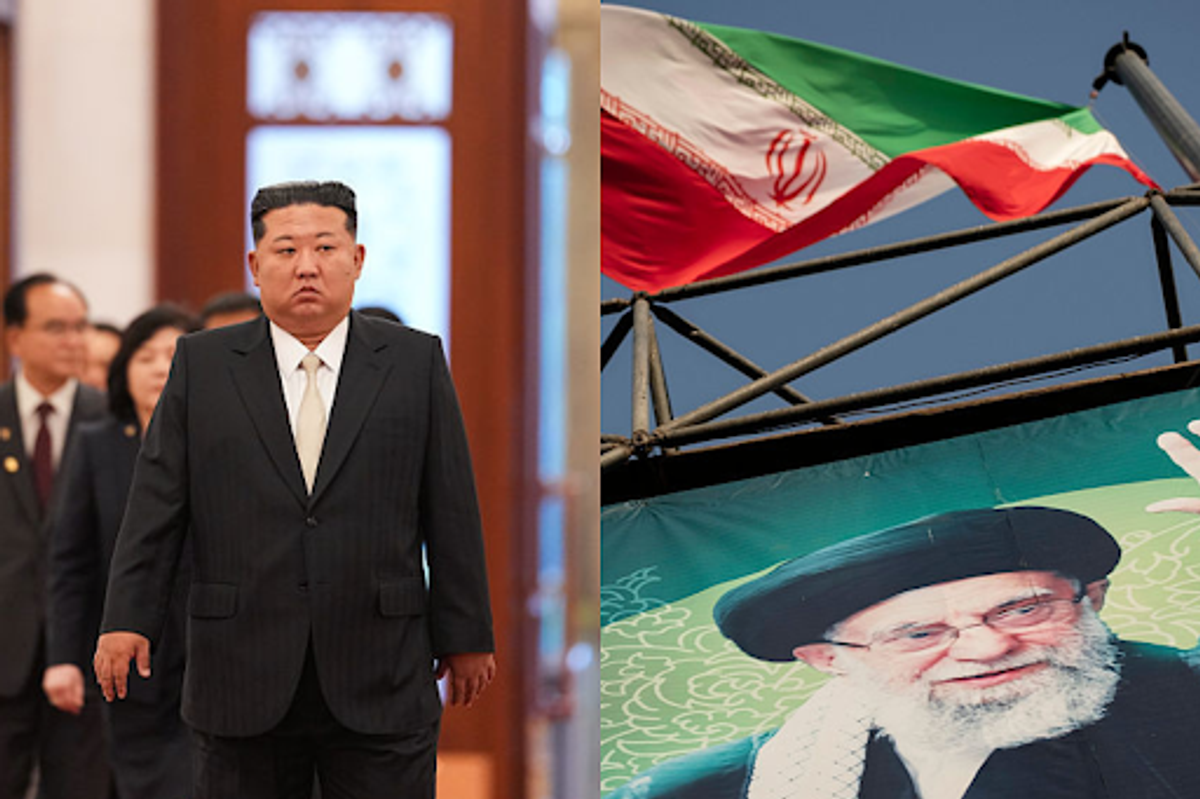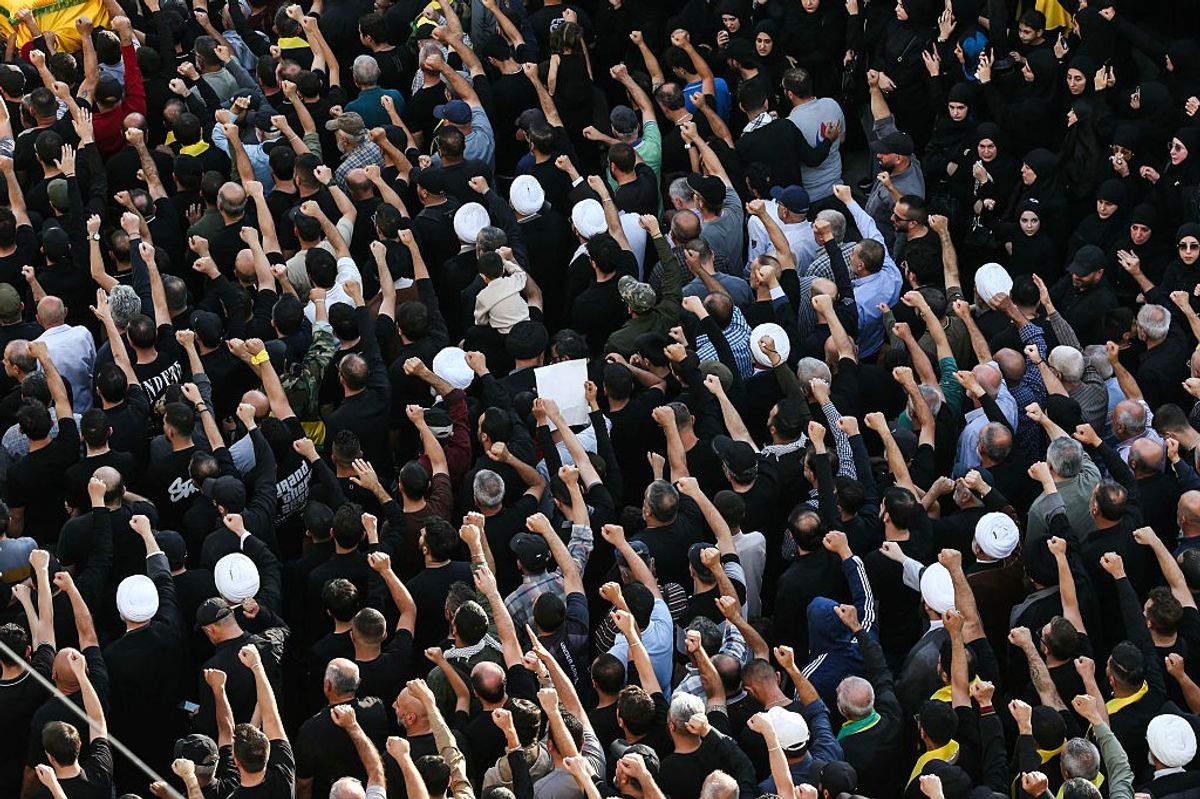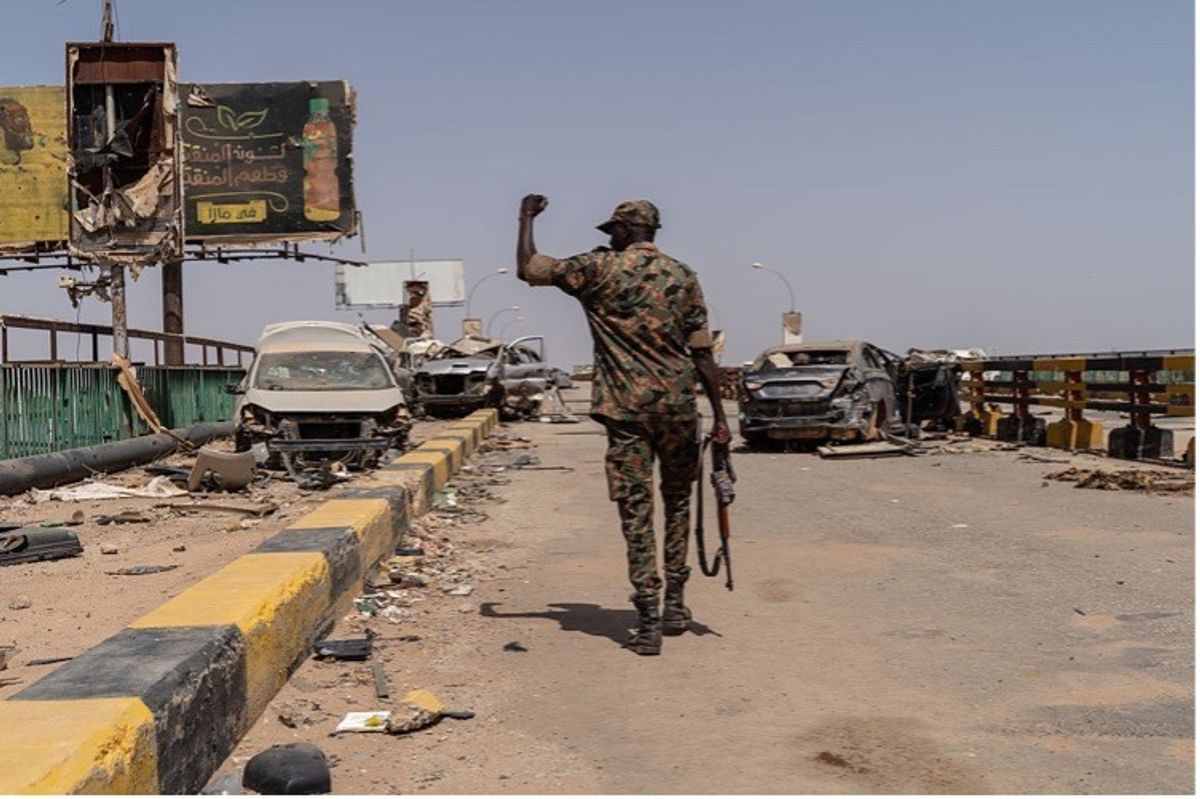MEMO TO THE PRESIDENT — Since Donald Trump’s victory in the November 5 election, The Cipher Brief has reached out to our network of experts for their thoughts on what the priorities ought to be for the second Trump administration. Our ask was straightforward: If you were given the opportunity of a short visit with the president during his first days in office, what message would you want to deliver?
The answers cover a broad range of issues. In this installment of our Memos To 47 series, Beth Sanner, a former Deputy Director for National Intelligence at the Office of the Director of National Intelligence, who served as daily briefer to the president during the first Trump Administration, suggests a path to a better U.S. relationship with Tehran.
Mr. President-elect:
There are deals, and there are Nobel Peace Prize-worthy deals. You have the opportunity for the latter, by forging a comprehensive deal with Iran. The context of a weakened – although still dangerous – Iran and your stated approach put you on a path to do so. You have said that you do not seek regime change in Iran, that negotiations are required, and that you will prevent Iran from obtaining nuclear weapons, including by using military force if necessary. That all sounds absolutely right.
Now the hard part.
Challenge your staff to answer these questions: How do we get Iran to the negotiating table, what should we seek in negotiations, and how do we conclude a deal or a series of deals? Having participated for nearly two years in an Atlantic Council project to develop a comprehensive U.S. strategy toward Iran, and given my experience as your briefer during an intense period of confrontation with Iran, I have some ideas of my own.
Let’s start by being honest. U.S. policies pursued over decades have failed to constrain Iran’s destabilizing influence across the Middle East or hobble its growing capacity to build a nuclear weapon. This is undeniably evident looking at facts on the ground today.
Let’s also be honest about why past efforts to constrain Iran have failed. First, because U.S. policy toward Iran has been politically divisive and lacked bipartisan consensus; Tehran purposefully waited out multiple administrations. Second, the consequences for Iran’s destabilizing actions were applied inconsistently and often with limited effects on Tehran’s actions. Third, goals set were either too limited or unclear or unachievable. The Obama Administration’s Joint Comprehensive Plan of Action (JCPOA) and the Biden Administration’s JCPOA 2.0 efforts were too narrowly focused, never tackling Iran’s regional malign behavior. Your own “maximum pressure campaign” was effective in bringing a world of hurt to Iran, but it didn’t get them to the negotiating table because your team was focused on regime change, rather than getting you a good deal.
Clarity up front on what you want is important. How about forming specific demands of Tehran around three policy principles, which should inform a broader slate of policies toward the region, including Syria, given Assad’s fall?
First, preventing Tehran from producing a nuclear weapon. Second, undermining Iran’s malign influence in the region by strengthening weak states and strangling Iran’s military and financial support to proxy forces in the region. Third, where possible, supporting the aspirations of the Iranian people to determine their country’s future, rather than pursuing a costly and unattainable goal of regime change through military action.
Just as you changed America’s understanding of the threat posed by China, you have the same opportunity to do so on Iran. Creating a bipartisan consensus is important, because then Iran can’t slow-roll you, and it helps address some of the domestic divisiveness around Middle East policy. This should be fairly easy, because Iran’s destabilizing behavior is now more obvious and the regional context has shifted so radically in recent months. To this end, ask Congress to establish a bipartisan commission, modeled on the joint House panel on Chinese Communist Party malfeasance, to expose and explain the damage Iran and its proxies have wrought on the people of the Middle East and the U.S.
Americans should know that Iran poses direct threats here at home. Not only has the Iranian regime tried to kill you, as well as other former officials, it has sought to destabilize our country by trying to influence voters and stoke antisemitic protests. It has conducted cyber attacks on U.S. hospitals and other critical infrastructure, including our water systems.
As you have noted, Tehran’s collaboration with Moscow has also given Russia the means to prolong its war against Ukraine, terrorizing Ukrainian civilians and taking many lives, as you have often spoken about. Iran’s collaboration with both Russia and China, in turn, has provided the regime a financial lifeline, dual-use technology, and military equipment. Tehran is closer than ever to the ability to produce nuclear weapons.
Are you Subscribed to The Cipher Brief’s Digital Channel on YouTube? Watch The Cipher Brief’s interview with CIA Director Bill Burns as he talks about The Middle East, Russia, China and the thing that keeps him up at night.
You have already declared that you intend to reapply maximum pressure on Iran, but you also have clearly said that a negotiated deal must be the goal of the pressure. To me, your goal requires a “perfect pressure campaign.” By this I mean that pressure must be applied with precision—including ratcheting it up and down based on Iran’s response to your demands and their behavior. It must also be purposeful, scoped and targeted to achieve clearly articulated ends, as well as being strategically patient, because some goals may take some time.
This is the right time for “perfect pressure.” Iran’s significantly weakened state means greater leverage. Thanks to Israeli determination backed by the U.S. and Assad’s dramatic collapse, Iran has largely lost the defensive ring provided by its proxy forces, its own missile defenses, and the myth that it can hide its intelligence and nuclear programs. It faces an impending leadership change with no clear or inspiring successor to Ayatollah Ali Khamenei, and its leaders know that they have no legitimacy with most Iranians, who loathe their corruption, economic mismanagement, and oppression. The rebellion in Syria demonstrated Iran’s inability to defend a critical ally, and Iran has limited funds to help rebuild Hezbollah, Hamas and the other proxies.
The “perfect pressure” campaign must squeeze Iran further, particularly by cutting Iran’s oil revenue. This means going after the shadow fleet that moves the oil, the countries facilitating this trade, and China—which buys nearly all of Iran’s oil exports, some $70 billion in 2023, according to the Congressional Research Service. Your National Security Adviser, Mike Waltz, recently said you will negotiate with Beijing to decrease its oil imports from Iran. You should know that Beijing will play hardball; it has long rejected the validity of U.S. sanctions on Iran, and Iran’s oil is mostly purchased by small refiners not exposed to the US financial system and sanctions.
Economic pressure on Iran will only be effective if backed up by the credible threat and execution of military force. Iranian-backed militias are responsible for many of the attacks on U.S. forces in Syria and Iraq, some 125 and 79, respectively, since Hamas attacked Israel last year. Our responses, while effective for a while, ultimately fail to deter because we do not respond to each and every attack. We must.
I know you want U.S. forces out of Syria, but we need them to stay for now, particularly at our base at Al Tanf to close Iran’s resupply routes. Even as I urge you to continue some military efforts, I would encourage you to end others, most prominently the heroic efforts by the U.S. Navy against the Houthis. This ongoing operations has cost billions and impacted future readiness, as we expend the very missiles needed in any future war scenario in Asia, at a rate far higher than our ability to produce replacements. Because the Houthis are largely undeterrable, Iran must be held accountable and incur penalties until it stops enabling and arming them.
But pressure alone will not bring Iran back to the negotiating table because while Iran is weakened, it is far from alone. Thanks to help from China and Russia and rapprochement with its Gulf neighbors, Iran is less isolated internationally now than they have been for decades. Crown Prince Mohammed bin Salman (MBS) no doubt sees Iran as Saudi Arabia’s primary threat, but he also has broader geopolitical ambitions and economic needs, and he questions whether you will come to Riyadh’s rescue if Iran attacks. MBS recently called on the international community to condemn Israel’s missile strike on Iran and prevent future attacks, and Saudi Arabia’s army chief of staff recently met with his counterparts in Tehran to discuss bilateral cooperation in defense and security.
But just as Iran has leveraged engagement to undermine efforts to isolate the regime, so too must the U.S. leverage its partners in order to increase pressure and re-isolate Iran. This requires working not only with MBS and Emirati leaders, but with our European allies as well. The good news here is that our P-3 partners—the UK, France, and Germany—have been more willing than ever to hold Iran to account for their nuclear blackmail.
Once the pressure has increased, and with it your leverage, negotiations must also include an offramp and the promise of benefits to Iran. This is where you can apply a Nixon-to-China approach to win over support from Iran hawks, in a way that President Biden never could. Iranian leaders will need to have confidence that halting the country’s nuclear program and curbing its regional malign influence will bring benefits, including sanctions relief based not on Iranian promises but specific actions taken that a bipartisan consensus agrees meet the mark.
Finally, Washington must support the aspirations of the Iranian people to choose the direction of their country’s future. This long-term endeavor will require consistency over future administrations, and must include the development of a menu of consequences to counter Iran’s gray zone warfare of hostage taking, assassination attempts, cyber attacks, and election meddling. Automatic penalties coordinated with our allies and partners would impose maximum effects.
A comprehensive strategy can yield both immediate wins for you by reducing the threat posed by Iran and its proxies, while quite possibly helping reshape the Middle East power dynamic, and creating the conditions for a more stable and prosperous region over the longer term. It starts with clarity about the choices Tehran faces: pain, should its regionally destabilizing behaviors and nuclear saber rattling continue; or – just as you told North Korea’s Kim Jong Un – a path to prosperity, should Iran’s leaders choose to constructively engage.
Who’s Reading this? More than 500K of the most influential national security experts in the world. Need full access to what the Experts are reading?
Read more expert-driven national security insights, perspective and analysis in The Cipher Brief because National Security is Everyone’s Business.
Have a perspective to share based on your experience in the national security field? Send it to Editor@thecipherbrief.com for publication consideration.















